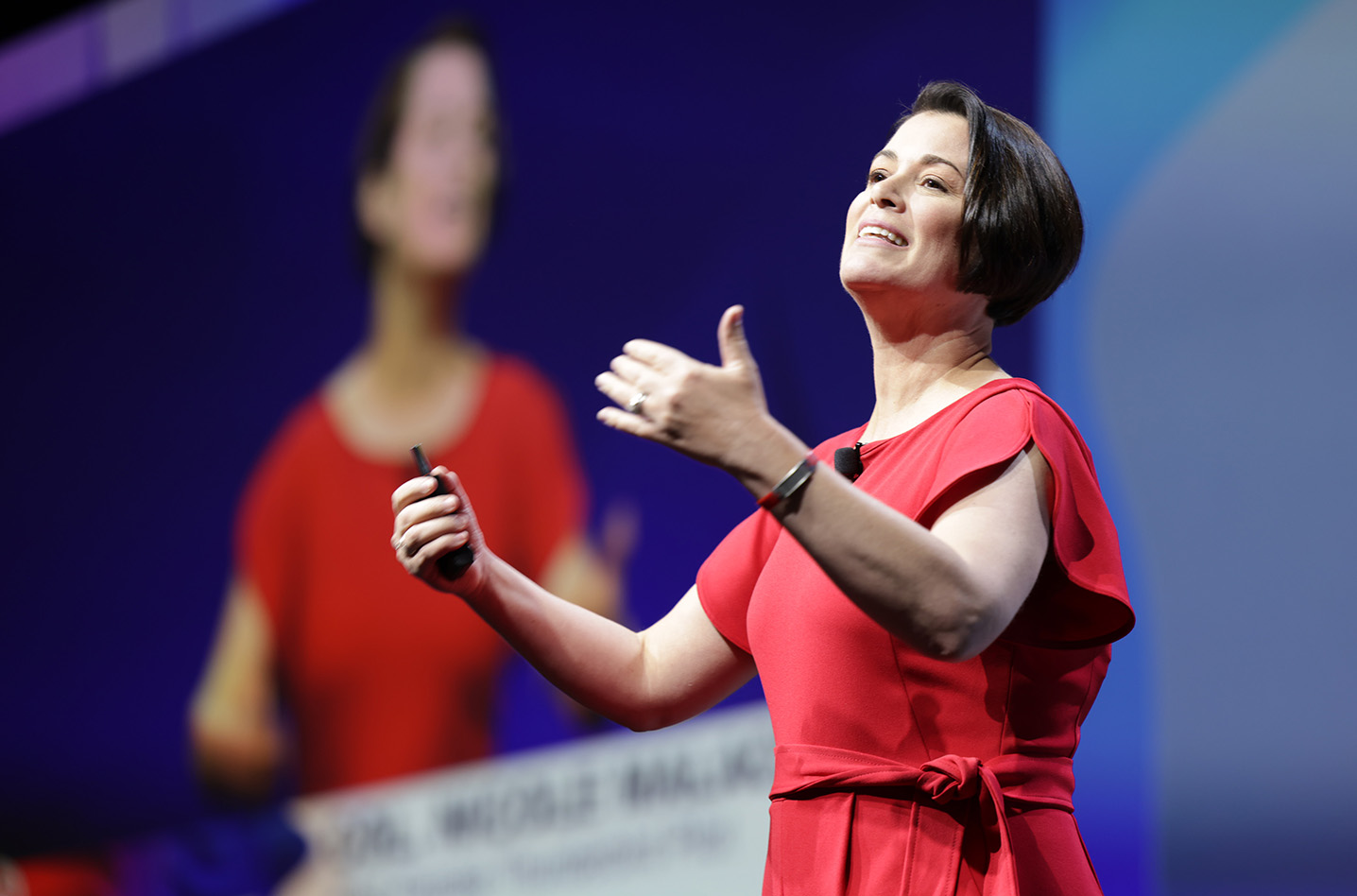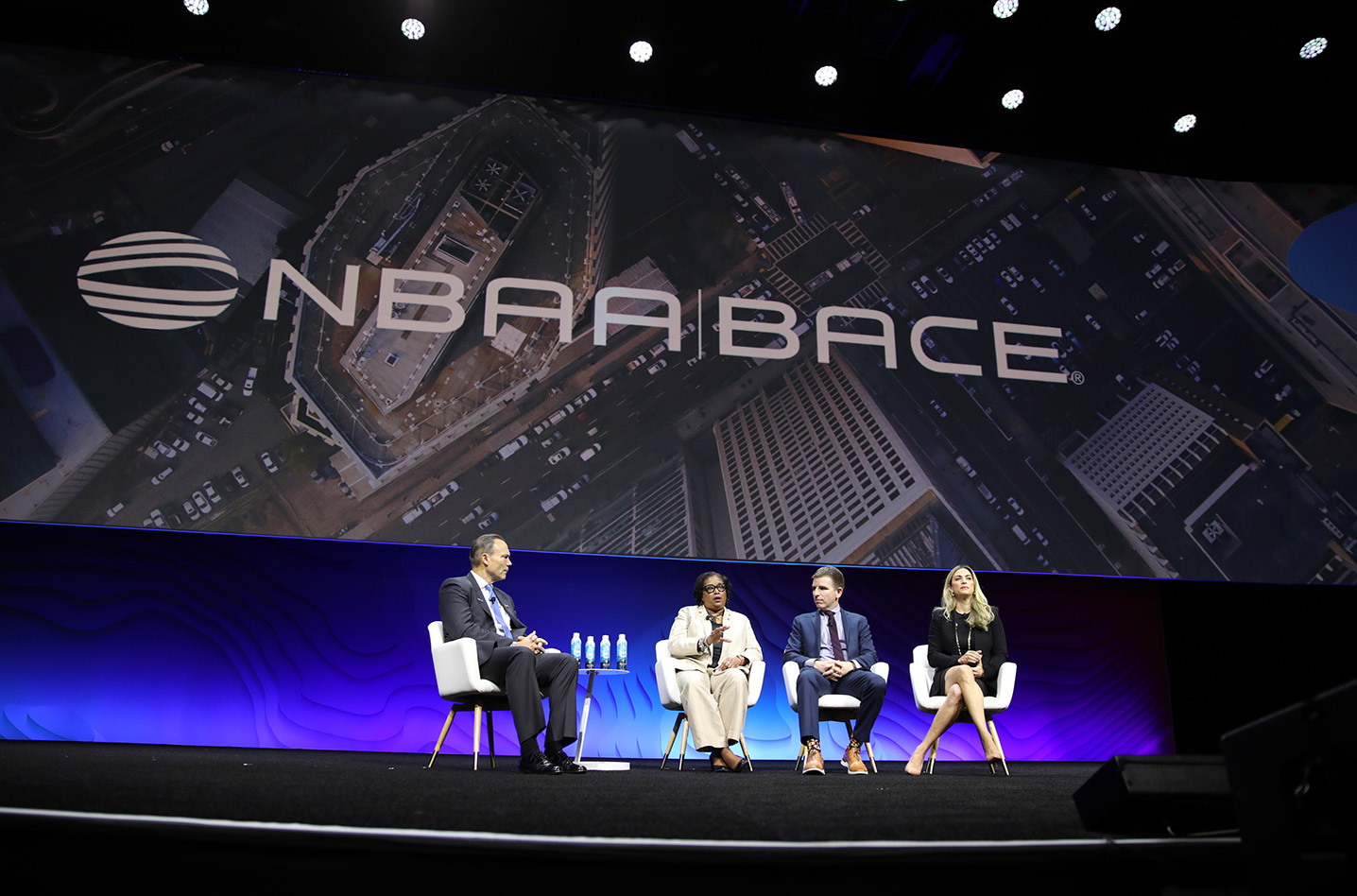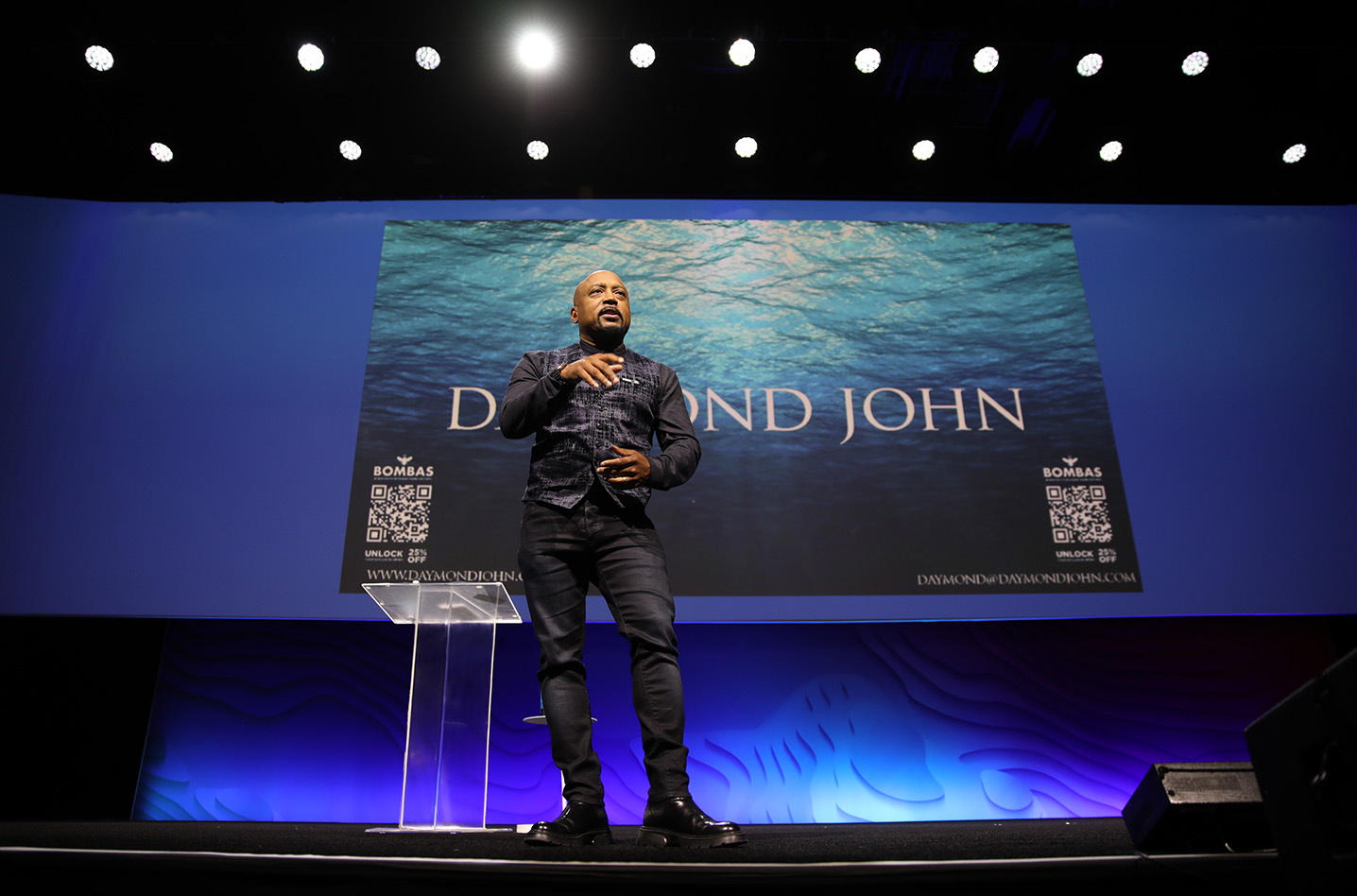NBAA-BACE Day 2 Keynote Champions Success Against Obstacles, Attitudes and Headwinds

Oct. 18, 2023
The Day 2 Keynote at the 2023 NBAA Business Aviation Convention & Exhibition (NBAA-BACE) continued many themes of the groundbreaking presentation the day before, offering important lessons about rising above the fray and surmounting challenges with innovation, intelligence and resolve.
NBAA President and CEO Ed Bolen led off the presentation by reiterating the significance of the newly launched Climbing. Fast. initiative, which is focused on sustainability not only in the environmental sense, but across all aspects of business aviation.
“We can continue to be a model of safety,” he said. “We can continue to be an industry that attracts the best and the brightest, wherever they are. Giving them not just a job, not just a career, but an entire community. A sense of belonging. A chance to make the kind of friends that all of us have.”
USAF Thunderbirds Pilot Nicole Malachowski

Retired U.S. Air Force Col. Nicole Malachowski felt pulled toward that community as a high school student in west Las Vegas, watching the USAF Thunderbirds scream overhead out of nearby Nellis Air Force Base. That led her to the cockpit of the F-15E Strike Eagle fighter and a dream to fly with the Thunderbirds herself.
However, self-doubt kept her from applying for several years, until she finally mustered the courage to submit her application in 2005. That required a letter of recommendation from a higher-ranking officer, whose staff told her, “‘The colonel only has one recommendation he can give, and we don’t want to waste it.’
“Everything everyone else has told me – you probably won’t be accepted, there’s never been a female Thunderbirds pilot before – was literally coming out of my own mouth,” she said. “But [Wing Commander] Gen. Mark Matthews told me, ‘No one wants to lead a scripted life.'”
That led Malachowski to submit her application after all, with a letter of recommendation not from that colonel, but Gen. Matthews himself. That lesson also offered guidance as she later faced a devastating brain infection that ended her career and kept her bed-bound for several months.
“We’re going to encounter headwinds,” she said. “The very worst headwinds can even take away options, but there’s two times we as aviators will actually seek out and turn into headwinds, and that’s for takeoff and landing.
“By turning into the headwinds, the aircraft makes that transition from the ground in the sky back down again, easier, smoother, more efficient, and a heck of a lot safer.”
AAM Leaders Look to the (Near) Future

Next, Hillwood Aviation President and CEO Matt Byrd led a panel of influential leaders in the emerging advanced air mobility (AAM) industry, who discussed the factors at work to enable full-scale AAM operations within the next decade.
“I want to thank NBAA for having myself and other members as part of this conversation,” said Shannetta Griffin, FAA associate administrator of airports. “This is exactly where we need to be to make sure that advanced air mobility comes into the system safely and efficiently, and make sure that we’re all accountable to our roles.”
Ben Marcus, co-founder of UP.Partners, said AAM holds a promise to bring the benefits of private aviation to the masses. “This incredible technology can be accessible to everybody,” he said. “We have the opportunity for the entire business aviation industry to really expand our reach, to inspire more people, to help them move better and to help them be a part of the global marketplace in a much more meaningful way.”
Autonomous operation is both a goal and enabler of AAM. Blade Urban Air Mobility CEO Melissa Tomkiel said she is encouraged by the measured progress being made in that area.
“The path is a realistic one,” she added. “I think we’ll start to see autonomous [operations] first with the military and for medical transport. We’re delivering organs now, flying the last mile between where jets land with the medical teams to coordinate transport to a hospital directly. It’s very feasible to be done with autonomous [vehicles.]”
Community acceptance is also important, and Byrd noted Hillwood’s work with Google Wing to deliver prescription medicines to customers in Texas.
“Our residents can order their prescriptions on their phone,” he said. “Instead of getting in your 4,000 lbs., carbon-emitting vehicle, going to Walgreens and sitting in line while feeling sick, the alternative is a drone that delivers your prescription to your front door.
“It’s happening today with tens of thousands of deliveries,” he added. “Here is how you develop community acceptance AAM.”
‘Shark Tank’ Investor and FUBU Mogul Daymond John

The Day 2 Keynote ended with a thrilling presentation by “the People’s Shark,” “Shark Tank” investor and FUBU founder and CEO Daymond John.
Accompanied by a hip-hop soundtrack John led attendees along the path that took him from a kid in Hollis, Queens, NY, handing out mall fliers for $2.25 an hour to heading the multibillion-dollar clothing brand.
That path started with John’s admiration for musicians like LL Cool J, Run DMC and the Beastie Boys, as well as for hard-working store owners, entrepreneurs and others in his own neighborhood who were always “the first ones there in the morning and the last ones to leave.
“Heroes always strive to create sustainable change,” he said. “They were the mentors in my community. They thanked everybody for their success, and they blamed only one person for their failure.”
John wanted to dress like the artists he admired, and one of those heroes offered to provide him with clothing on consignment. With his mother’s encouragement, John also used his sewing skills to produce his own clothing, including 80 copies of a popular hat that he sold for $800.
“My goal had started to unfold in front of me,” he said. “What I realized in life is that we may set goals or numbers we want to hit. We may set goals on destinations, and logistics… but we don’t set our personal goals.” For better or worse, John continued, “we become what we think about most of the time.”
Fortunately, his thinking was to manufacture more clothing for a market that was underserved by other brands, if not viewed with outright contempt. John recalled one popular footwear brand of the time that pointedly told The New York Times, “We don’t make or sell our clothes to drug dealers.”
After some initial branding missteps (John’s early offerings bore the brand ‘BUFU’, which he noted “didn’t work out quite well”) he built a clothing empire that stayed true to his principles, his background and his home.
John warned attendees not to take away the wrong message from his success. “Many people equate money to success,” he said. “Money often just drives – or flies – you into more problems and brand-new challenges.
“Responsibility is something that must be taken and can’t be given,” John emphasized. “As long as you understand that you will be successful.”
Any person who attends an NBAA convention, conference, seminar or other program grants permission to NBAA, its employees and agents (collectively "NBAA") to record his or her visual/audio images, including, but not limited to, photographs, digital images, voices, sound or video recordings, audio clips, or accompanying written descriptions, and, without notifying such person, to use his or her name and such images for any purpose of NBAA, including advertisements for NBAA and its programs.
Related Articles
November 1, 2023
NBAA Thought Leadership Webinar: Ears to the Ground at 2023 NBAA-BACE
October 26, 2023
2023 NBAA-BACE: ICYMI Newsletter
October 20, 2023
NBAA TV: NBAA-BACE Helps Current and Future Industry Professionals Take Off
October 19, 2023


 International Business Aviation Council Ltd.
International Business Aviation Council Ltd.